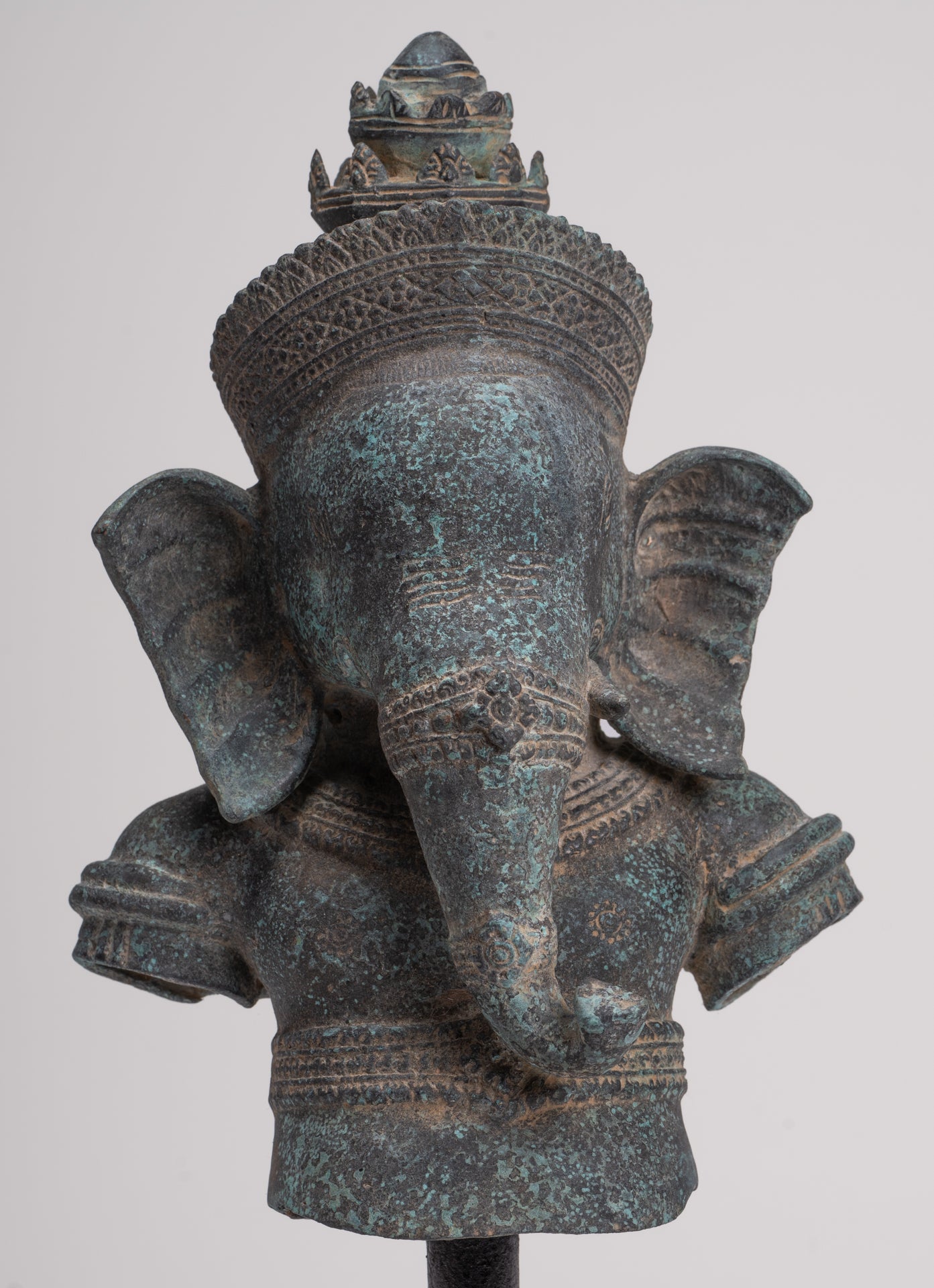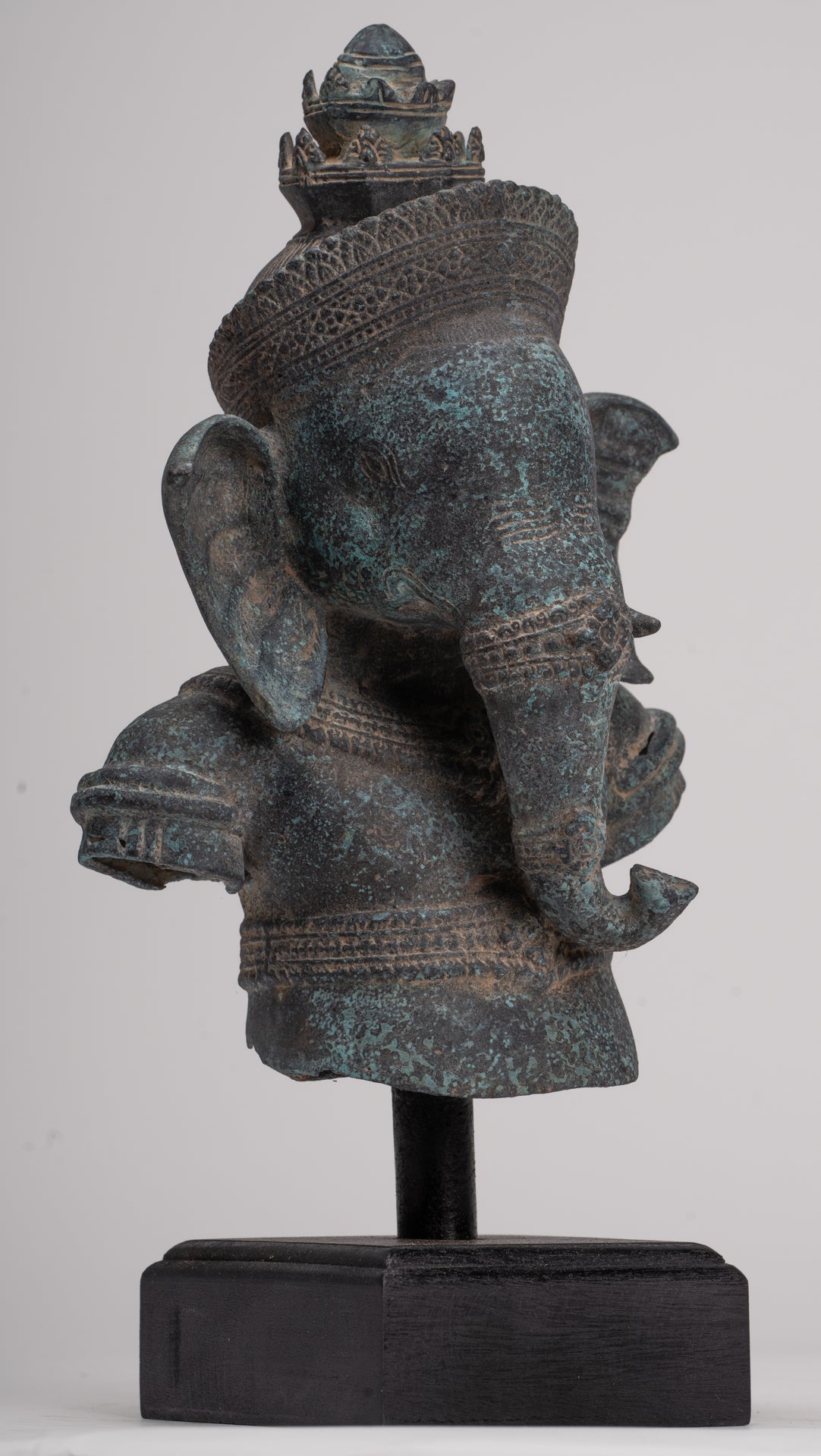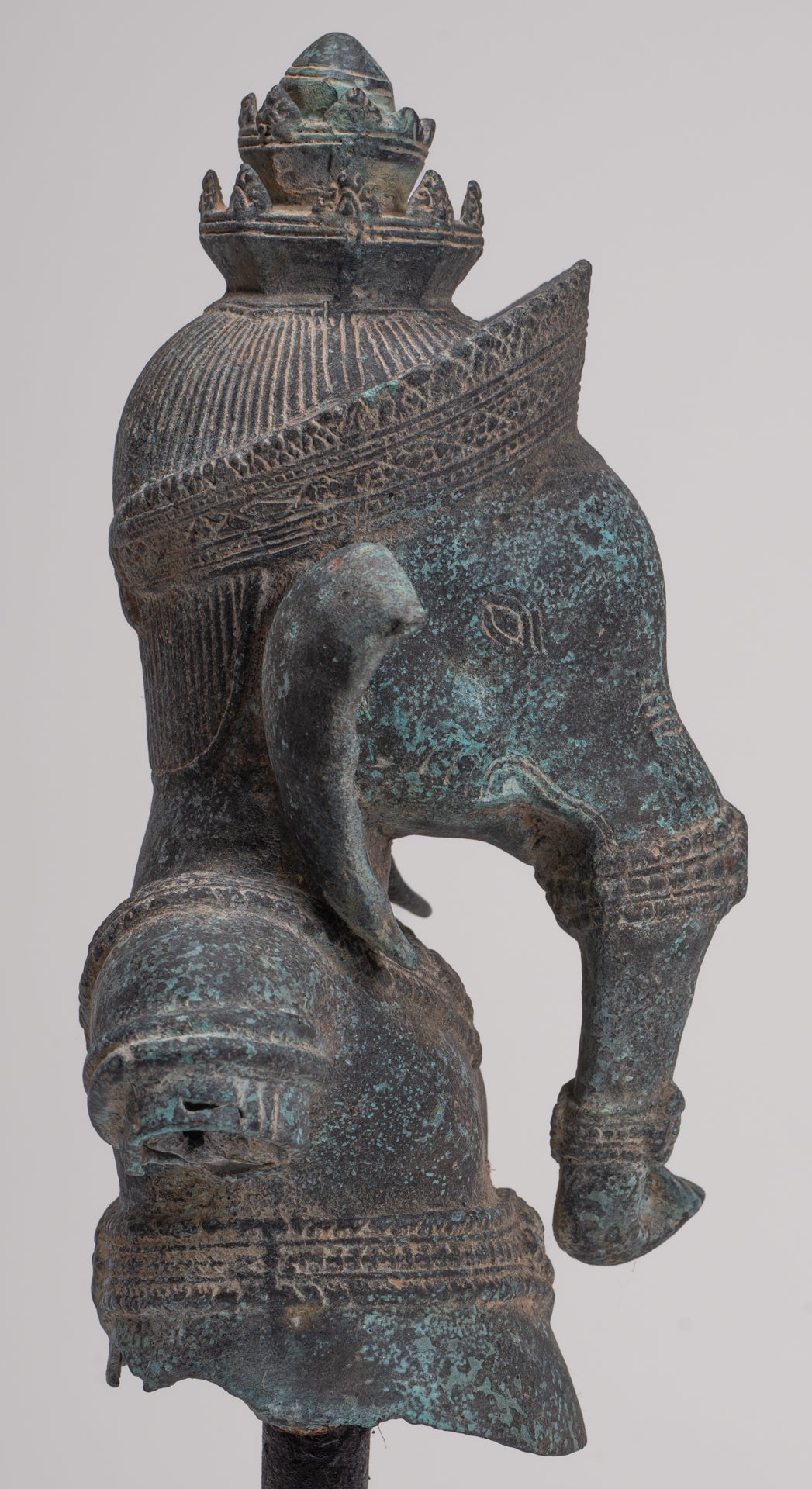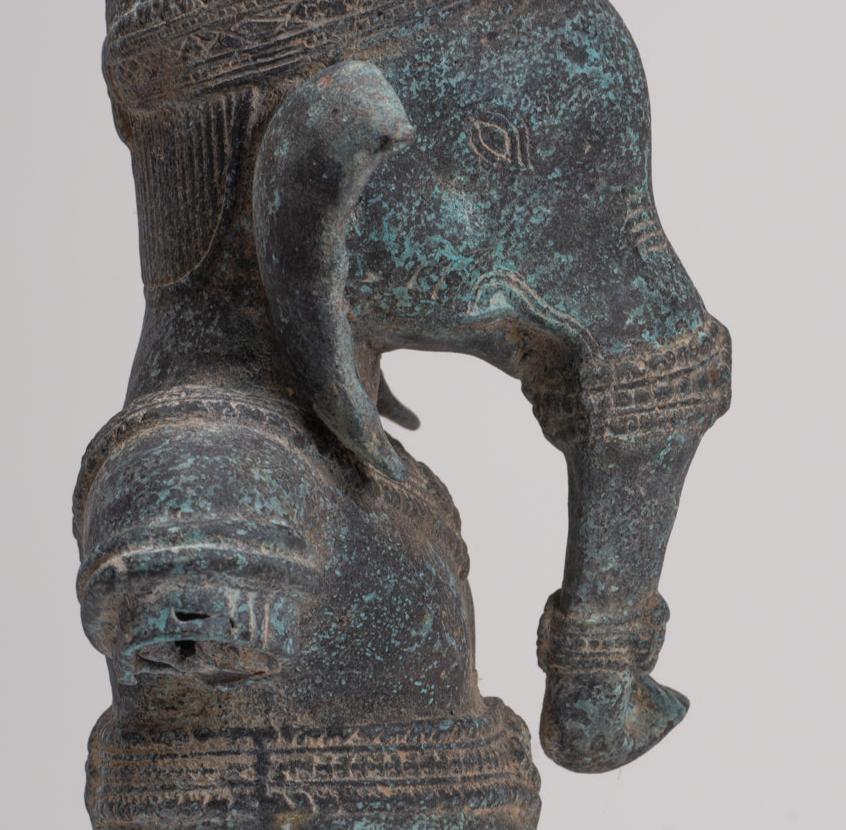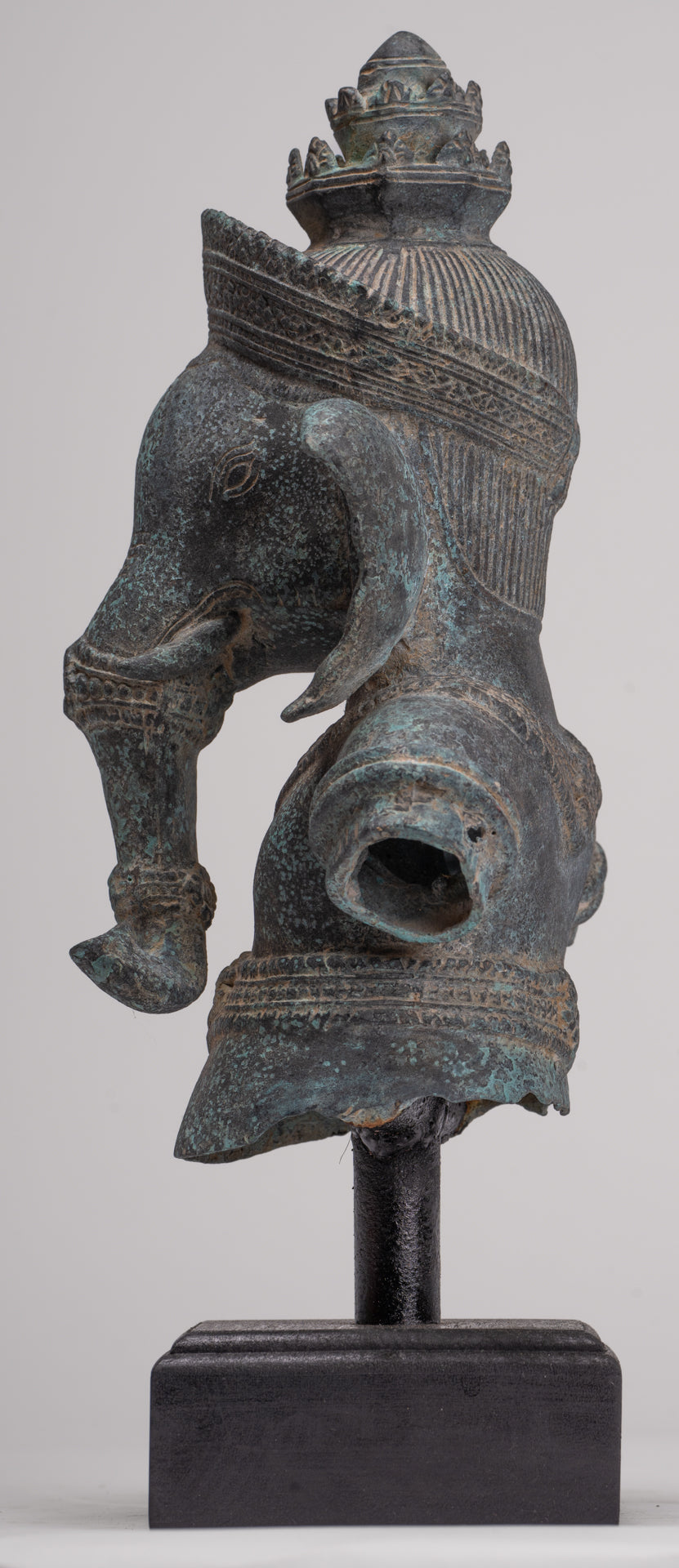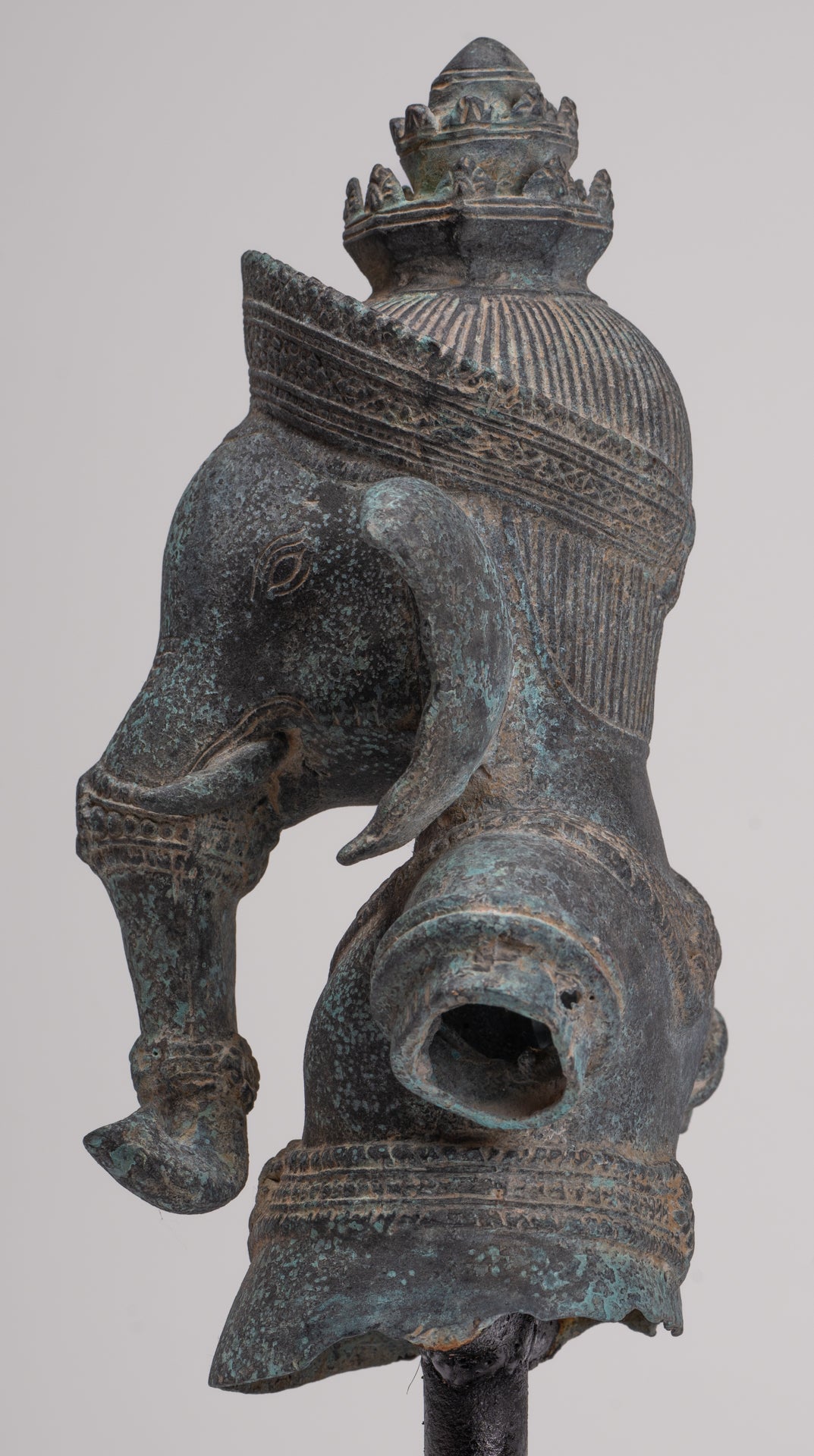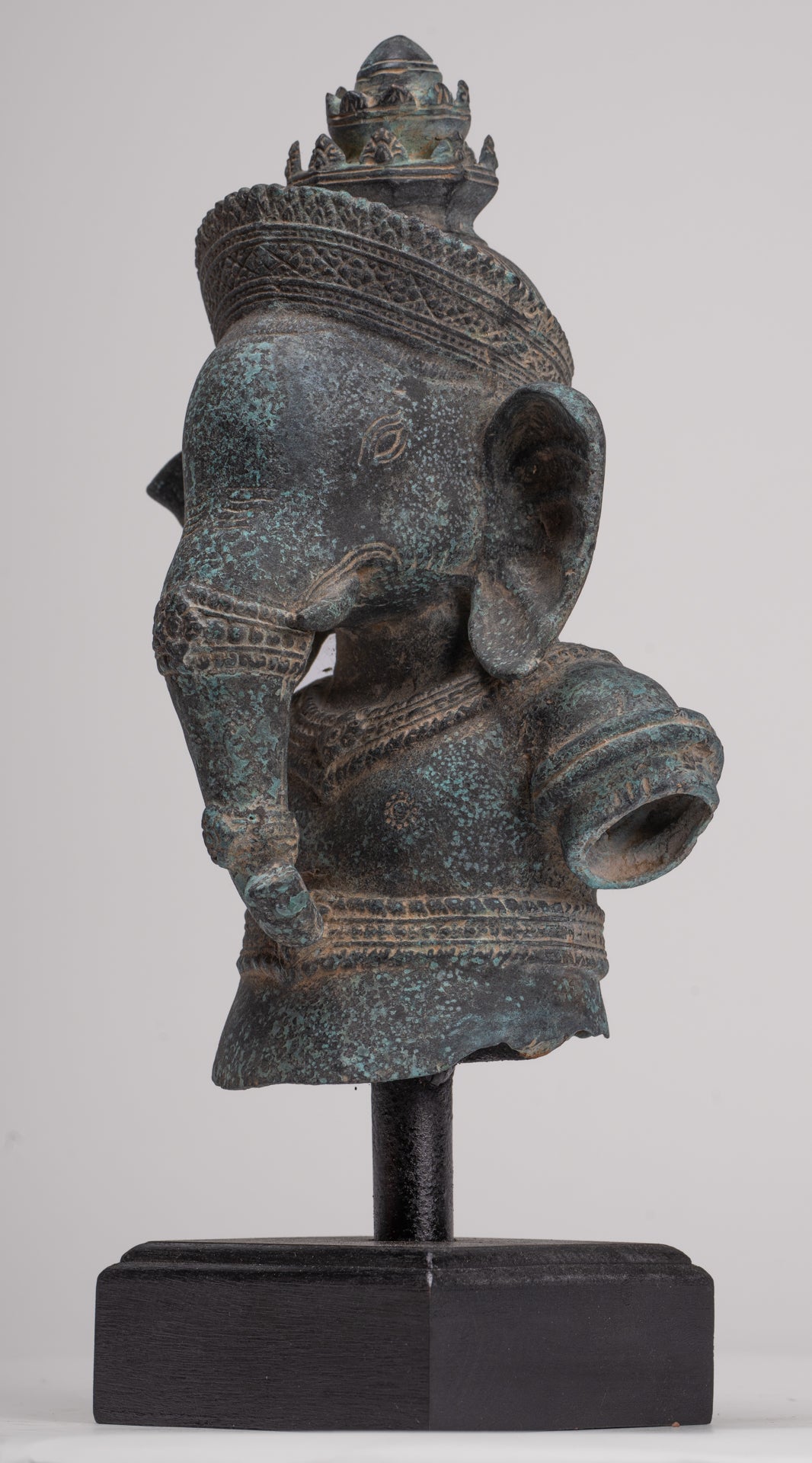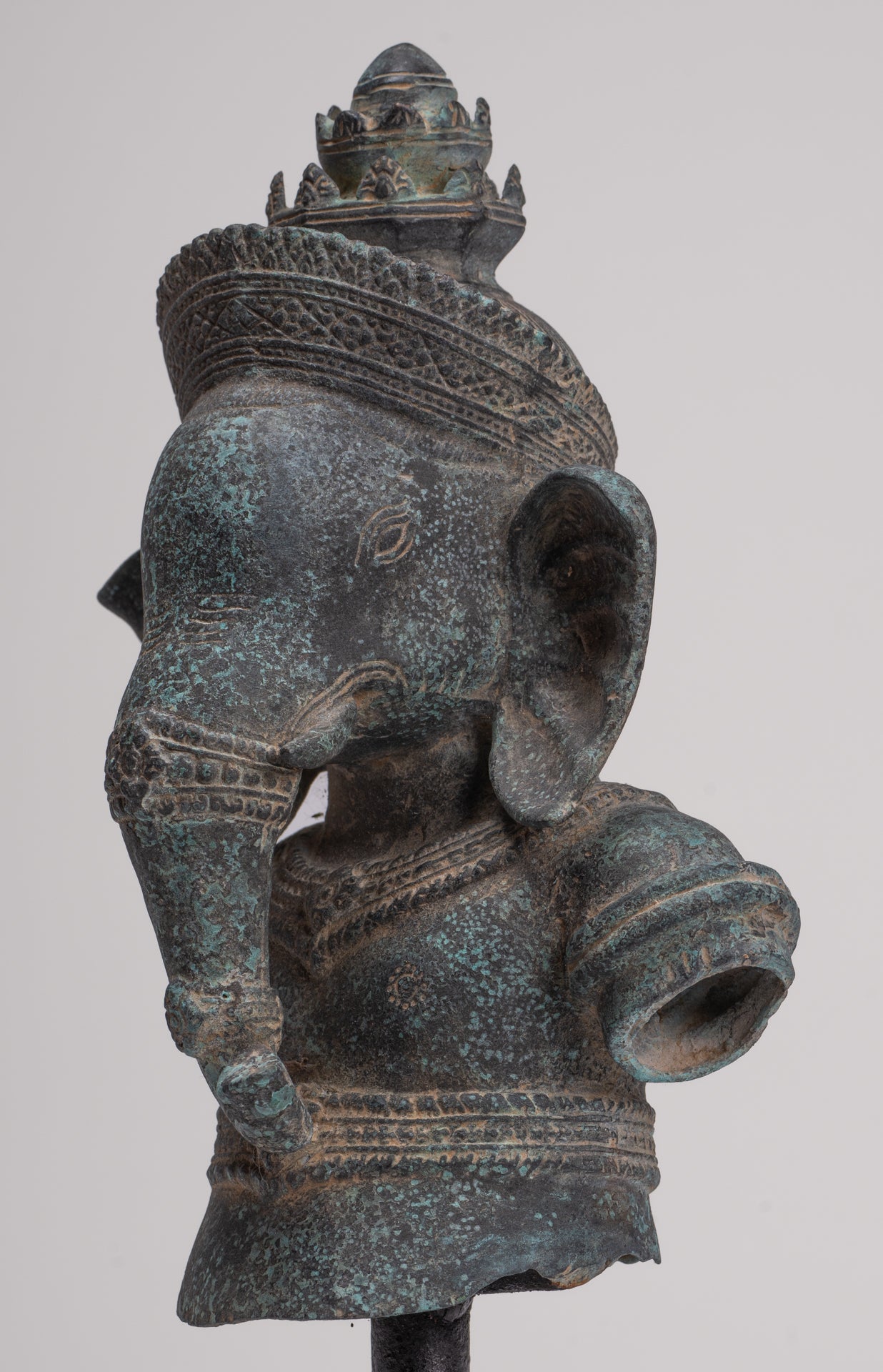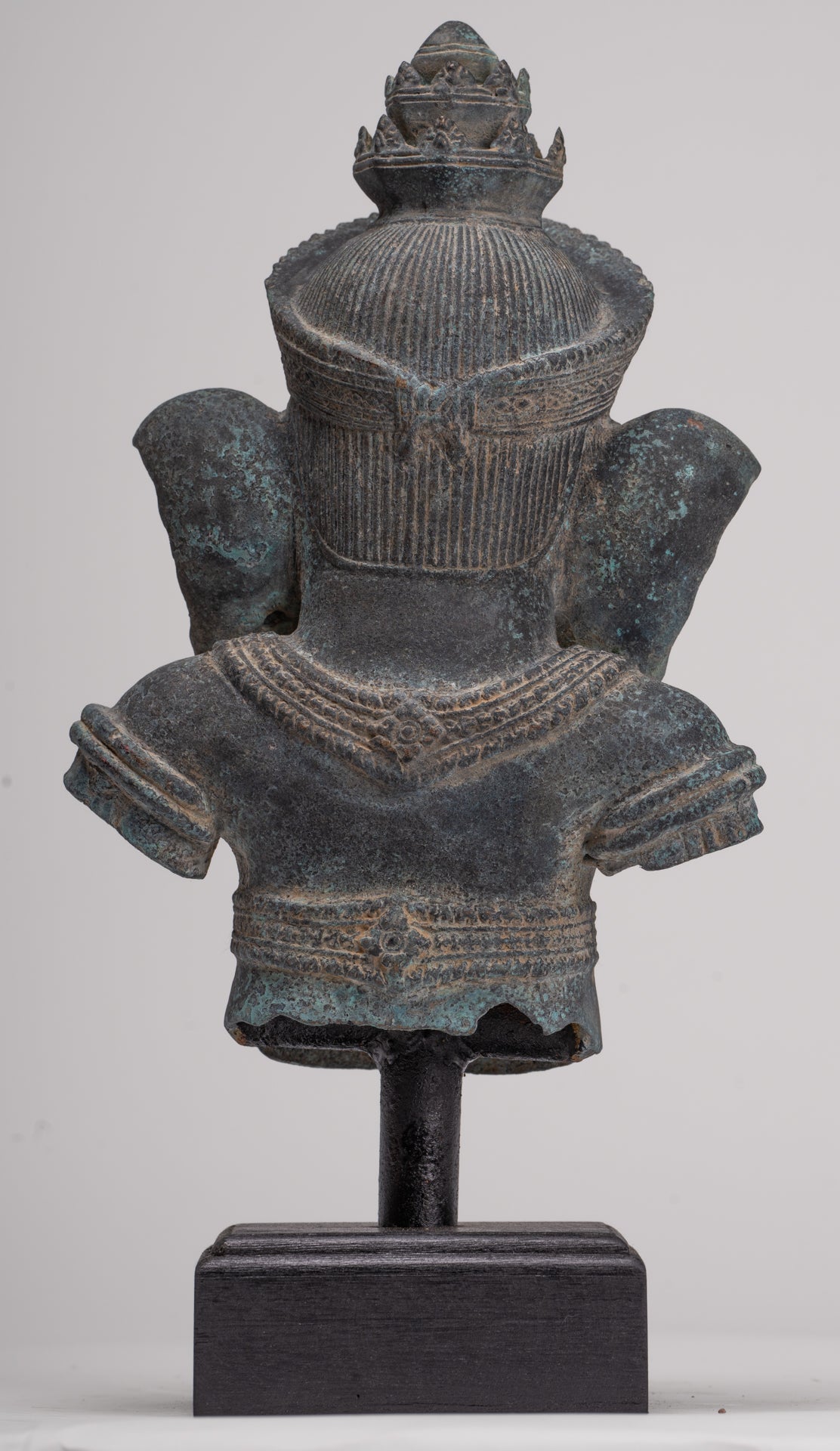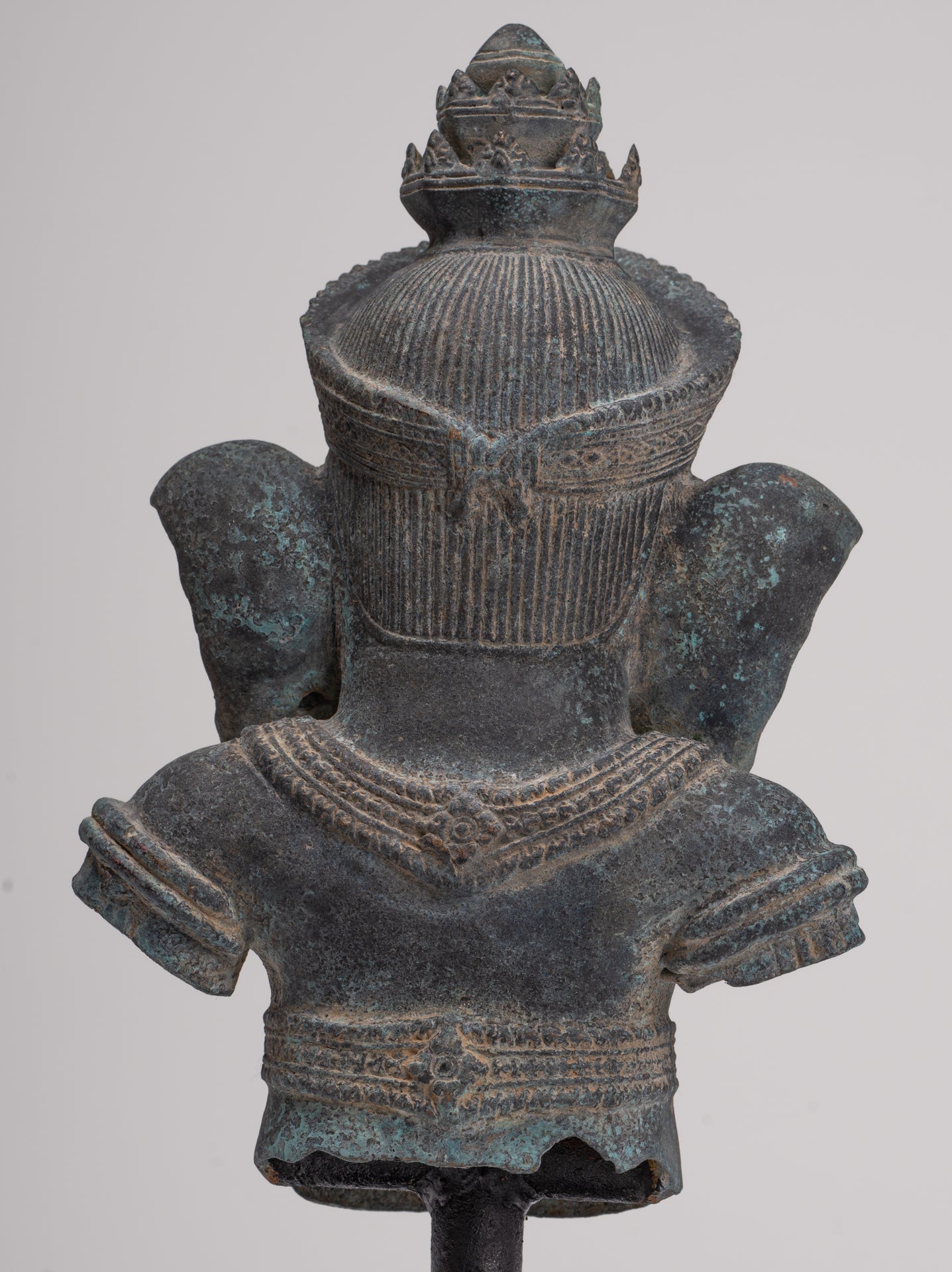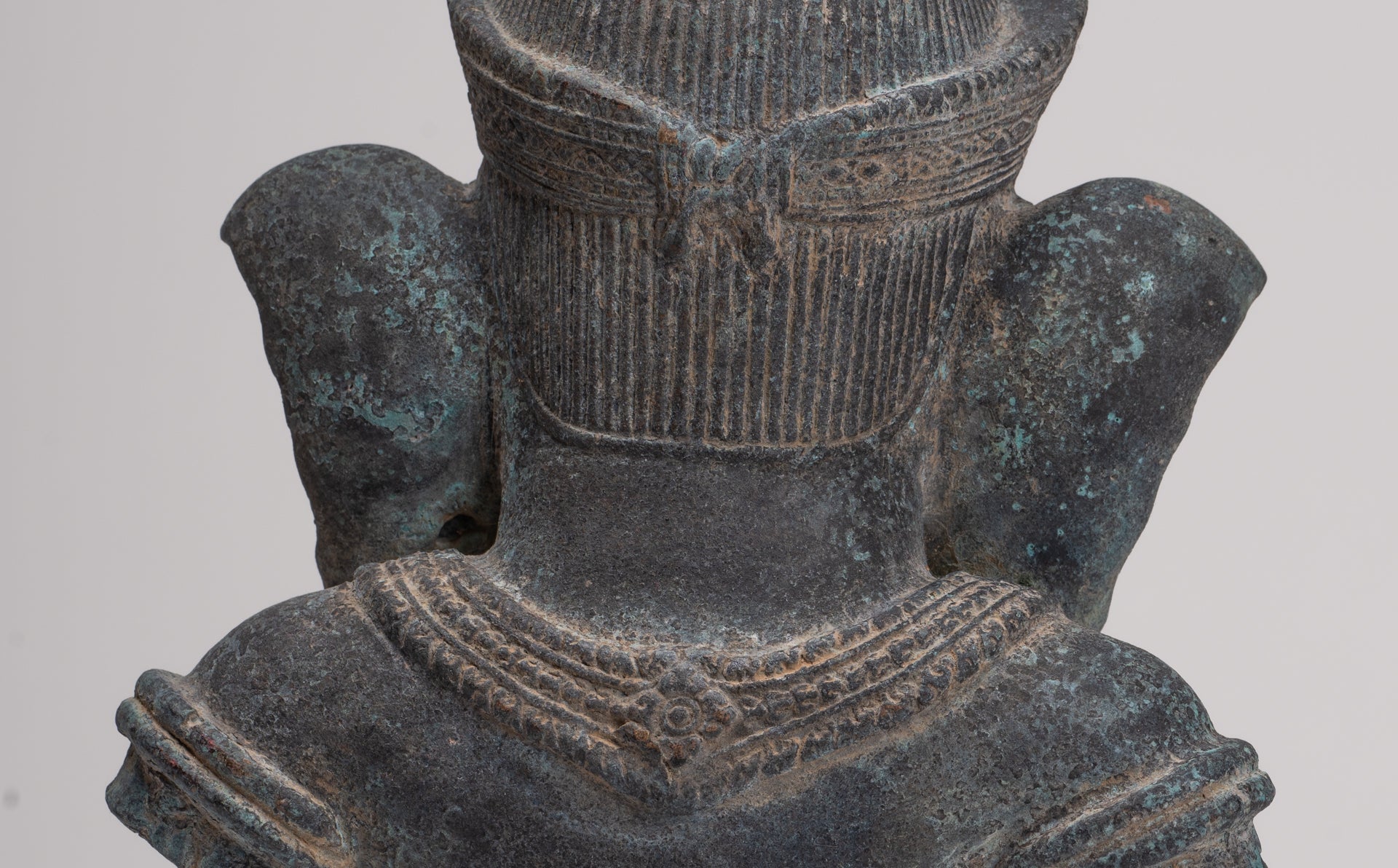-
Ganesha Statue - Antique Khmer Style Mounted Bronze Banteay Srei Ganesha Statue - 37cm/15"
Measures (Height) 37cm/15"
An antique Khmer style Ganesha torso in the pre-Angkorian late 10th century style of Banteay Srei.
The Bantreay Srei style developed at the same time as the Pre Rup style and overlaps that of the Kleang. It uses and develops the formulas of the Koh Ker style, the headdress with horizontal tresses and the conical mukuta.
The fullness of the forms give the face a softness which accentuates the eyes warm gaze and abundant serenity.
The anatomy shows a strong sense of observation. The overall silhouette is elegant and a reminder of the Pre Angkorian Art. The ornate carving of the diadem provide a delightful contrast with the smooth facial features.
Ganesh, the elephant-headed deity, son of Shiva is a prominent figure in Hinduism and is revered as the remover of obstacles and the god of wisdom and beginnings. His worship is deeply ingrained in Hindu traditions, and his imagery is ubiquitous in various religious ceremonies and festivals.
Similar to Krishna, Ganesha celebrates life through it's pleasures and beauty.
Symbolically, the elephant Ganesh is revered for his wisdom, strength, and memory. Lord Ganesha's elephant head signifies the supreme intelligence and foresight that he embodies. It encourages worshippers to cultivate wisdom and discernment in their spiritual and worldly pursuits.
Ganesha's large, flappy ears, symbolizing his attentiveness to the prayers and concerns of his devotees. The ability to listen is a crucial aspect of spiritual growth, and Lord Ganesha, with his prominent ears, serves as a reminder to cultivate a receptive and empathetic nature.
The elephant trunk, with its flexibility and strength, is a symbol of adaptability. In the context of Lord Ganesha, it represents the capacity to overcome obstacles and challenges in life. The trunk is often depicted curving to the left, signifying the moon, creativity, and the flow of life. This direction also signifies the direction for success in the world. It is a position associated with grihastas, or householders.
In his early forms in India, Ganesha was associated with fertility. Later he became widely revered as the Remover of Obstacles and more generally as Lord of Beginnings and Lord of Obstacles, patron of arts and sciences and the deity of intellect and wisdom.
The distinctive patina of the piece is particularly delightful.
This traditional in appearance piece is sure to add a unique touch to any room of your home or workplace. One of the most recognizable of the Asian deities this representation of Ganesha is sure to enlighten your home with endlessly timeless style.
SATISFACTION GUARANTEE - We have been offering SE Asian Art for many years and are proud of the reputation we have developed for fair and honest listings. However, if for any reason, whatsoever, you are unhappy with your purchase please just let us know and we will provide a full refund. We want you to be 100% happy with your purchase.
-
The majority of orders will be shipped with DHL. This is a secure, express and fully tracked service.
Items less than 2Kg we typically ship using Royal Mail.
Once we receive your order we try to ship all orders the same or next working day.
Large and/or fragile pieces requiring palletising, specialist crating and/or extra packaging may take a little longer. Palletised shipments will be delivered curbside.
All orders over 35 GBP will be shipped free of charge.

-
We genuinely hope that all purchases delight.
However, if they do not, regardless of reason, we will refund all orders upon receipt of the unwanted item. Just notify us within 14 days of receiving your order that you wish to make a return and send the piece back to us with 30 days of delivery.
A finely carved stone Buddha sculpture has a presence that very few art objects can match.
The weight of the stone, the softness of the carving, and the way light grazes its surface create an atmosphere of calm that transforms whatever space it occupies.


